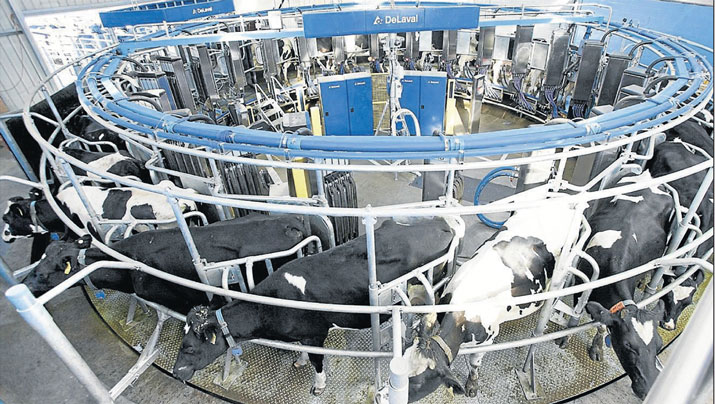
Robohub.org
FutureDairy with Kendra Kerrisk


FutureDairy is an R&D development program to help Australian dairy farmers manage the challenges they are likely to face during the next 20 years. In this episode, Ron Vanderkley speaks with the project lead Kendra Kerrisk from the University of Sydney about robotic milking and herding.
As one of the big challenges is the availability of labor and associated lifestyle issues in the dairy industry, FutureDairy’s focus is on automatic milking systems. While robotic milking technology is now in wide use overseas, there’s less experience with automatic milking in grazing-based farming systems such as in Australia. The video below summarizes some of the results from the DeLaval pilot farm in Australia.
With increasing numbers of Australian dairy cows now being milked by robots, researchers are looking at a range of exciting ways to use robots on the farm. One that has already shown promise is the use of robots (UGV) to herd cattle from the paddock to the dairy. In the videos below you can see two trials with the Shrimp rover hearding cows in Australian farms.
FutureDairy 3 is sponsored by Dairy Australia, the University of Sydney, the NSW Department of Primary Industries and DeLaval.
Kendra Kerrisk
 Kendra Kerrisk is Faculty of Veterinary Science at the The University of Sydney in Australia. Kerrisk developed a strong interest for the Dairy Industry whilst conducting undergraduate and post-graduate studies at Massey University in New Zealand and has remained a leader in the field since then. During her PhD at the University of Melbourne she studied Peri-parturient Management for Large Dairy Herds using Controlled Breeding Programmes. After her PhD, she worked for Dexcel (formerly Dairying Research Corporation) in New Zealand on the world’s first pasture-based Automatic Milking System research farm. Through her academic life, she has contributed significantly to the national and international knowledge regarding application of Automatic Milking Systems (AMS) with pasture-based dairying. One of the highlights of the work conducted within FutureDairy, a project which she leads, has been the co-development of the world’s first Robotic Rotary (Automatic Milking Rotary, DeLaval AMRTM). This internationally recognized work will increase the feasibility of robotic milking for large dairy herds that are more common within the Australian and New Zealand industries.
Kendra Kerrisk is Faculty of Veterinary Science at the The University of Sydney in Australia. Kerrisk developed a strong interest for the Dairy Industry whilst conducting undergraduate and post-graduate studies at Massey University in New Zealand and has remained a leader in the field since then. During her PhD at the University of Melbourne she studied Peri-parturient Management for Large Dairy Herds using Controlled Breeding Programmes. After her PhD, she worked for Dexcel (formerly Dairying Research Corporation) in New Zealand on the world’s first pasture-based Automatic Milking System research farm. Through her academic life, she has contributed significantly to the national and international knowledge regarding application of Automatic Milking Systems (AMS) with pasture-based dairying. One of the highlights of the work conducted within FutureDairy, a project which she leads, has been the co-development of the world’s first Robotic Rotary (Automatic Milking Rotary, DeLaval AMRTM). This internationally recognized work will increase the feasibility of robotic milking for large dairy herds that are more common within the Australian and New Zealand industries.
Links:
- Download mp3 (10.9MB)
- Subscribe to Robots using iTunes
- Subscribe to Robots using RSS
- The FutureDairy Project
- Kendra Kerrisk’s Website
tags: agricultural robotics, Environment-Agriculture, podcast, robohub focus on agricultural robotics




